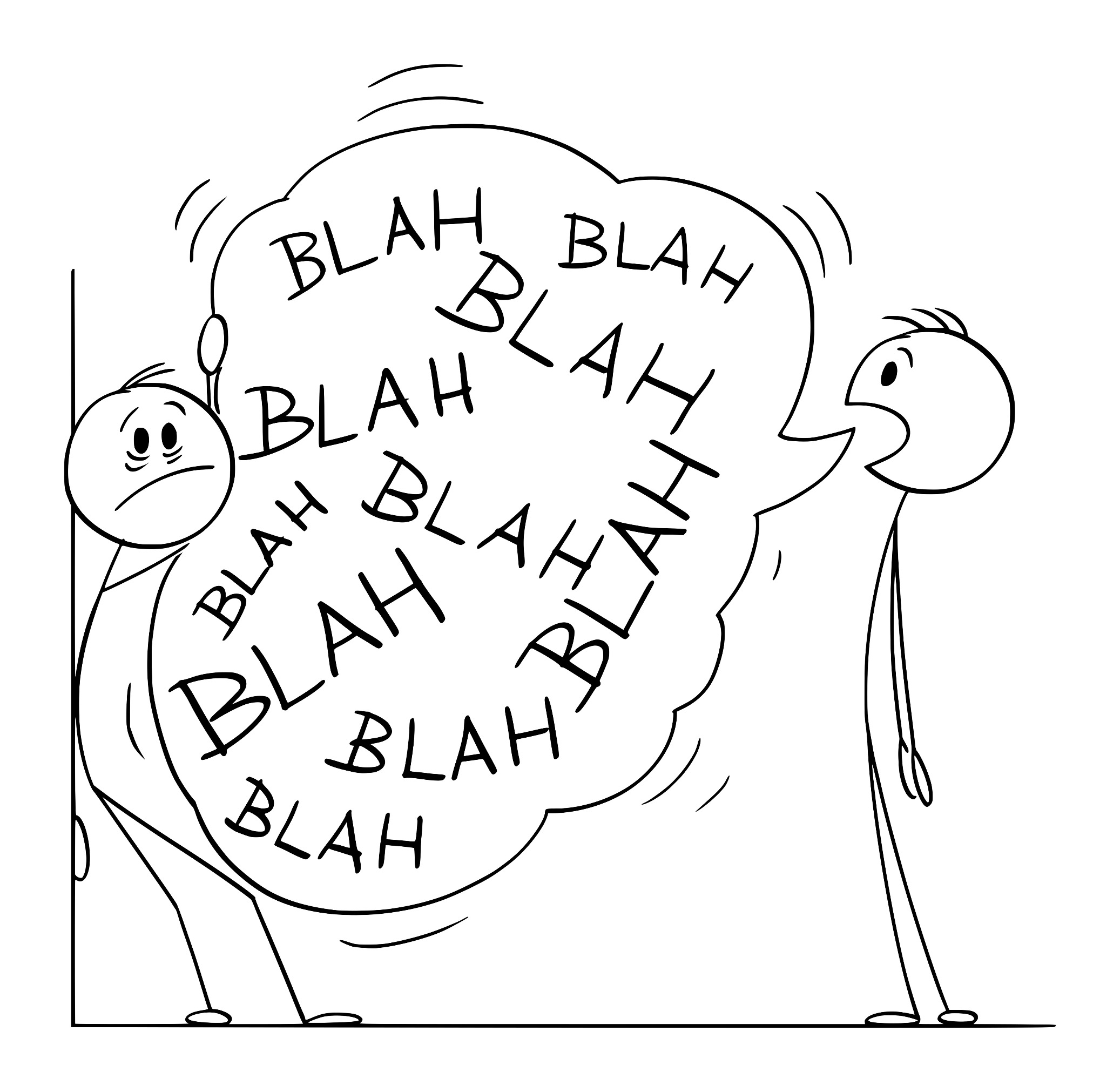When You Talk Too Much

You know you talk too much when you repeatedly hear yourself say, “I’m sorry, I’ve been dominating the conversation.” The confession leads you to your duty of drawing out others’ views. Oh, that precious moment when you discover that you must stop talking to be able to hear!
Recognize the Signs
Do people avoid conversations with you or begin a conversation by letting you know they only have a minute to talk? Or maybe you call someone and leave a voicemail requesting a call back, only to receive a text or email in return.
These are signs that you tend to dominate conversations or make them too lengthy.
Granted, talking too much is a relative term. For an introvert, even a quick exchange of pleasantries can feel like a lot. While others may enjoy taking the time to listen to lengthy stories and anecdotes.
As usual, mindfulness will be your friend in recognizing signs that you talk too much. Consider the following questions:
- Are you talking at a fast pace, avoiding any pause in conversation?
- Are you speaking at a louder than appropriate volume?
- Do you suddenly realize you don’t have a clue what others who are present think about the subject of your conversation?
- Do you feel an urgency to say what you’re thinking, even interrupting others?
- Do you feel an inability to stop yourself from speaking?
Honing in on the ways that speaking may hinder your ability to communicate will help you make corrections. It’s fair to conclude that when individuals talk too much, what they bring to the table will be undervalued.
Why Do You Talk Too Much?
Identifying what’s behind your talkativeness is helpful.
- What is making me feel nervousness in this situation?
- What seems to be stressing me out?
- Why am I feeling so awkward?
- Have I identified why I am here? What is my purpose here and now in this situation?
Many times, social anxiety causes individuals to talk excessively. What new habits do you need, starting now, to feel calmer and more confident?
A few “go to’s” for immediate calmness:
- Visualize yourself staying calm and allowing others to speak.
- Notice, name, accept, then release your emotions.
- Keep a daily journal to work through your thoughts.
- Develop the practice of not reacting to everything that is brought to your attention.
- At least once a day, schedule 5 or 10 minutes to employ the tool of meditation to become more aware of your thoughts and appreciation of mindfully being quiet. Use a timer to end your personal session.
Remaining calm in social situations requires consistent practice. You might even enter a meeting or social event with the intention of listening and observing in order to curb your desire to speak.
Finding Calm in Silence
Contributing to social or conversational anxiety is the dread of silence. Some people have the impression that a quiet moment or two indicates a lag in conversation or that something is wrong.
Consider silence as a simple pause between topics or an opportunity to gather one’s thoughts. Changing perspective on these uncomfortable moments will help you appreciate them and use them to make conversations more meaningful.
Before long, you’ll probably notice you don’t have the feeling that you need to fill every second by talking. Power comes in the awareness that others might experience the same habits of talking too much. The etiquette-ful actions in the moment of purposefully inviting in and welcoming the conversational contributions of others will reap much self-satisfaction. And the simple guideline of “Now you speak. Then I speak,” can be a useful “how to” in conversation.
“Talking too much is a far greater social fault than talking too little.”
~ Eleanor Roosevelt














